Rose F. Kennedy signed United States Lines - Autograph Stock Certificate
Inv# AG1118 Autograph

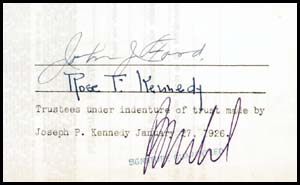
Rose Elizabeth Fitzgerald Kennedy (July 22, 1890 – January 22, 1995) was an American philanthropist, socialite, and a member of the Kennedy family. She was deeply embedded in the "lace curtain" Irish Catholic community in Boston, where her father John F. Fitzgerald was mayor. Kennedy was the wife of businessman and investor Joseph P. Kennedy Sr., who was United States Ambassador to the United Kingdom, formally known as Ambassador to the Court of St. James's in the UK. Their nine children included President John F. Kennedy, Senator Robert F. Kennedy, and longtime Senator Ted Kennedy. In 1951 she was ennobled by Pope Pius XII, becoming the sixth American woman to be granted the rank of Papal countess.
Rose was born at 4 Garden Court in the North End neighborhood of Boston, Massachusetts. She was the eldest of six children born to Boston Mayor John Francis "Honey Fitz" Fitzgerald and Mary Josephine "Josie" Hannon. Her siblings were Agnes, Thomas, John Jr., Eunice, and Frederick.
As a young child, she lived in an Italianate/Mansard-style home in the Ashmont Hill section of Dorchester, Massachusetts and attended the local Girls' Latin School. The home later burned down, but a plaque at Welles Avenue and Harley Street proclaims Rose Fitzgerald Kennedy Square. The plaque was dedicated by her son, Senator Ted Kennedy, on her 102nd birthday in 1992.
Fitzgerald studied at the convent school Kasteel Bloemendal in Vaals, Netherlands, and graduated from Dorchester High School in 1906. She also attended the New England Conservatory in Boston, where she studied piano. After being refused permission by her father to attend Wellesley College, Fitzgerald enrolled at the Manhattanville College of the Sacred Heart (as it was then known) in Manhattan, an institution that did not grant degrees at the time. In 1908, Fitzgerald and her father embarked on a tour of Europe. She and Honey Fitz had a private audience with Pope Pius X at the Vatican.
On October 7, 1914, at age 24, she married Joseph Patrick "Joe" Kennedy after a courtship of more than seven years. The long courtship was partly due to her father's disapproval of Kennedy. He was the elder son of businessman/politician P. J. Kennedy (a political rival of Honey Fitz) and Mary Augusta Hickey. They initially lived in a home in Brookline, Massachusetts that is now the John Fitzgerald Kennedy National Historic Site, and later a 15-room vacation home at Hyannis Port on Cape Cod, which became the Kennedy family's lasting base. Their nine children were Joseph Jr. (Joe), John (Jack), Rose (Rosemary), Kathleen (Kick), Eunice, Patricia (Pat), Robert (Bobby), Jean, and Edward (Ted).
Joseph provided well for their family, but he was unfaithful. His affairs included one with Gloria Swanson. When Rose was eight months pregnant with the couple's fourth child, Kathleen, she temporarily went back to her parents, returning to Joseph after her father told her divorce was not an option. In turning a blind eye to her husband's affairs, Rose depended heavily on medication. Ronald Kessler found records for prescription tranquilizers Seconal, Placidyl, Librium, and Dalmane to relieve Rose's nervousness and stress, and Lomotil, Bentyl, Librax, and Tagamet for her stomach.
Rose Kennedy was a strict Catholic throughout her life. Even after her 100th birthday, she rarely missed Sunday Mass and maintained an "extremely prudish" exterior. Her strict beliefs often placed her at odds with her children. Jacqueline Kennedy described her mother-in-law in her correspondence to Father Joseph Leonard, an Irish priest: "I don't think Jack's mother is too bright – and she would rather say a rosary than read a book."
Rose Kennedy stated that she felt completely fulfilled as a full-time homemaker. In her 1974 autobiography, Times to Remember, she wrote, "I looked on child rearing not only as a work of love and a duty, but as a profession that was fully as interesting and challenging as any honorable profession in the world and one that demanded the best I could bring to it..... What greater aspiration and challenge are there for a mother than the hope of raising a great son or daughter?"
Children
| Name | Birth | Death | Marriage and children |
|---|---|---|---|
| Joseph Patrick "Joe" Kennedy Jr. | July 25, 1915 | August 12, 1944 | Never married and had no children, but was once engaged to Athalia Ponsell |
| John Fitzgerald "Jack" Kennedy | May 29, 1917 | November 22, 1963 | Married in 1953, to Jacqueline Lee Bouvier, had four children, one of whom was stillborn (Arabella) and one who died of hyaline membrane disease after 2 days (Patrick Bouvier Kennedy). |
| Rose Marie "Rosemary" Kennedy | September 13, 1918 | January 7, 2005 | Never married and had no children |
| Kathleen Agnes "Kick" Kennedy | February 20, 1920 | May 13, 1948 | Married in 1944, to William Cavendish, Marquess of Hartington, never had children |
| Eunice Mary Kennedy | July 10, 1921 | August 11, 2009 | Married in 1953, to Robert Sargent "Sarge" Shriver Jr., had five children |
| Patricia Helen "Pat" Kennedy | May 6, 1924 | September 17, 2006 | Married in 1954, to English actor Peter Lawford, had four children; divorced in 1966 |
| Robert Francis "Bobby" Kennedy | November 20, 1925 | June 6, 1968 | Married in 1950, to Ethel Skakel, had eleven children |
| Jean Ann Kennedy | February 20, 1928 | June 17, 2020 | Married in 1956, to Stephen Edward Smith, had two sons and adopted two daughters |
| Edward Moore "Ted" Kennedy | February 22, 1932 | August 25, 2009 | Married in 1958, to Joan Bennett, had three children; divorced in 1982. Remarried in 1992 to Victoria Reggie; had no children |
After her son John was elected president in 1960, Rose "became a sort of quiet celebrity" and appeared on the International Best Dressed List. Most of her social activities consisted of involvement in charities and women's groups. Rose also took brisk ocean swims outside her Cape Cod house.
After suffering a stroke in 1984, she used a wheelchair for the remaining eleven years of her life. She maintained her residence at the Kennedy Compound in Hyannis Port, Massachusetts and was cared for by private nurses and staff.
On January 22, 1995, Kennedy died from complications from pneumonia at age 104 at the Kennedy family compound in Hyannis Port. She was survived by five of her nine children as well as many grandchildren and great-grandchildren. Rose Kennedy was interred with her husband at Holyhood Cemetery in Brookline, Massachusetts.
In 1951, Pope Pius XII granted Kennedy the title of countess in recognition of her "exemplary motherhood and many charitable works." In 1992, when she turned 102, the intersection of Welles Avenue and Harley Street in Boston was proclaimed "Rose Fitzgerald Kennedy Square". The plaque was dedicated by her son, Senator Edward M. Kennedy. Also, the Rose Kennedy Greenway in Boston, Massachusetts – the park that was created when the city's Central Artery was sunk below ground level in the "Big Dig" – was named after her on July 26, 2004. Well known for her philanthropic efforts and for leading the Grandparents' Parade at age 90 at the Special Olympics, Kennedy's life and work are documented in the Oscar-nominated short documentary Rose Kennedy: A Life to Remember. She was a lifelong autograph collector.
The Rose Fitzgerald Kennedy Bridge in Ireland is named after her. As of its 2020 opening it is the longest bridge in Ireland.
Written works
- Kennedy, Rose Fitzgerald (1974). Times To Remember. Doubleday and Company. ISBN 9780385016254.
- Kennedy, Rose Fitzgerald (1995). Times To Remember. Doubleday and Company. ISBN 978-0-38547-657-7.
United States Lines was the trade name of an organization of the United States Shipping Board (USSB), Emergency Fleet Corporation (EFC) created to operate German liners seized by the United States in 1917. The ships were owned by the USSB and all finances of the line were controlled by the EFC. Among the notable ships of this period was Leviathan, a contender for largest ship in the world for a time. Eventually the line was sold and went private to continue operating as a transatlantic shipping company that operated cargo services from 1921 to 1989, and ocean liners until 1969—most famously, United States.
United States Lines was the trade name of the United States Shipping Board's Emergency Fleet Corporation (EFC) organization created to operate the large German liners seized by the United States in 1917. By 1925 the corporation operated ex-German liners Leviathan, George Washington, America, Republic and the USSB built ships President Roosevelt and President Harding in service between New York and Europe. On 15 November 1921 the line began operating from piers 3 and 4 at the USSB's Hoboken Terminal which had been the Hamburg America Line facilities in Hoboken, New Jersey seized by the United States and, during the war, operated by the Army as the Hoboken Port of Embarkation. The USSB engaged in advertising of the line and its ships through agencies using a "coupon" system to collect names and addresses of interested persons for direct mailings. All the line's funds were managed by the USSB Treasurer. Read more at https://en.wikipedia.org/wiki/United_States_Lines







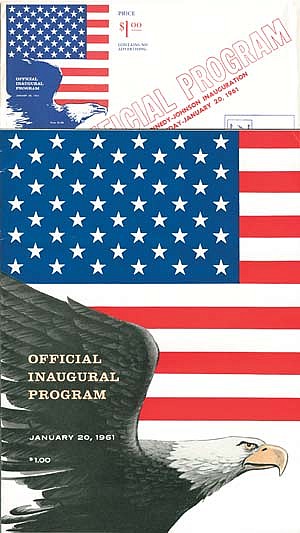

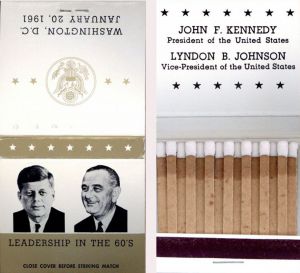
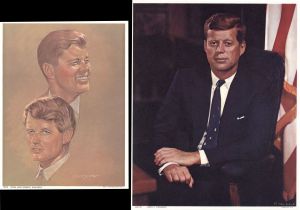
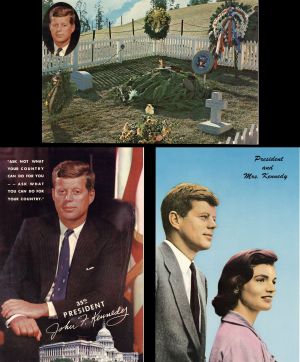




Ebay ID: labarre_galleries